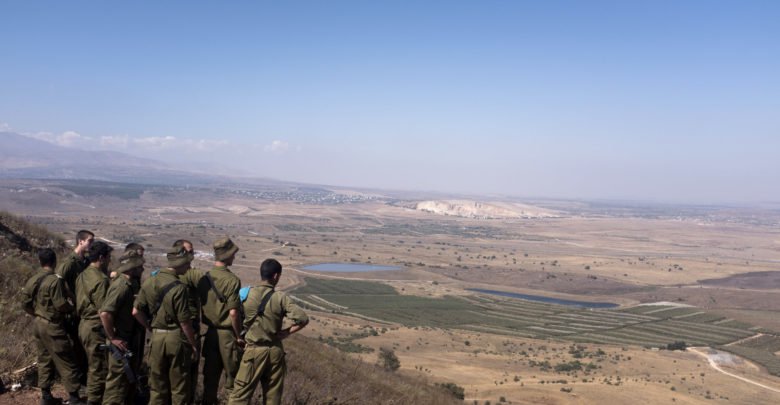Mysterious prisoners-swap deal | Israel releases two civilians from Al-Quneitra, after Russian mediation
SOHR sources say that Israel released two civilians who had been arrested previously after they lost their way while they were shepherding sheep near the border strip in Al-Quneitra countryside. The two civilians were released today under a prisoners-swap deal.
On the other hand, details of the prisoners-swap deal circulated widely on media have been still unknown, as there is no information about the number of people expected to be swapped. It is also unknown if the remains of Israeli soldiers retrieved during searching by Russian experts in Al-Shuhadaa tomb in Al-Yarmouk camp in Damascus in the past few days are included in the deal or not.
Yesterday, reliable sources in Al-Quneitra told the Syrian Observatory that there were no Israeli women detained by the regime forces or the Syrian Resistance to the Liberation of the Golan in al-Quneitra. This development came after the Syrian regime announced through its official media outlets a “heroic” prisoner swap with Israel under Russian sponsorship, in which both Nihal al-Maqt and Dhiab Qahmoz would be released in return for the release of an Israeli girl arrested while crossing into Syrian territory from al-Quneitra by mistake.
In this context, Syrian Observatory sources said that Nahal al-Maqt is not detained at all and her sentence is suspended and she is now at her home in Majdal Shams in the occupied Syrian Golan, at a time when the captive Qahmoz is supposed to be released.
SOHR sources also reported that more than 15 days passed since the Russian forces started to excavate the cemetery of Yarmouk camp, south of the capital Damascus, and it was assumed that the Russian side achieved results regarding the remains of an Israeli soldier who was killed decades ago and buried there, amid unconfirmed reports that the remains they searched for may be of prominent Israeli agent Elie Cohen, who was killed in the 1960s.
A large number of remains were exhumed and DNA analysis were carried out in order to reach the Russian target, which sparked popular discontent in the region, as the Russians desecrated the dead with such operations.
Meanwhile, the Syrian regime was unable to justify this situation to its supporters, as it used to parrot it favourite cliché of “reserving the right to respond” to each Israeli attack on Syrian territory as always.
Russia intended to hand over the remains of the soldier to Israel as it did before, when it handed over the remains of two Israeli soldiers nearly two years ago, who were killed in previous battles in the late 1970s and early 1980s.
The Russian search for the Israeli soldier came at a time when Syrian airspace, particularly south and west of the capital Damascus, is witnessing a battle between Israeli and regime’s air defense missiles.

